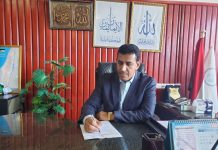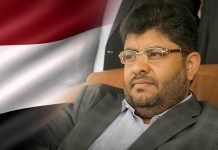The American-Israeli spy network members have disclosed a significant series of confessions, aired on Saturday, regarding the recruitment of a prominent political and parliamentary figure who worked for US intelligence in Yemen.
The spy cell members identified several individuals, including Ali Mohsen, who maintained a close connection with the US ambassador, and Sultan al-Barakani, who hosted US intelligence recruitment events at his residence.
Other notable names mentioned include Othman Majli, Hashim al-Ahmar, Shawqi al-Qadi, Sakhr al-Wajeeh, Yassin Saeed Noman, Abdulmalik al-Mikhlafi, Tawakkol Karman, Saad al-Din Bin Taleb, Ahmed Awad Bin Mubarak, and Hamid al-Ahmar, among others.
The spy cell members disclosed that prior to the National Dialogue Conference, US intelligence had plans to reshape Yemen into a fragmented “federal” state.
According to their revelations, US officials had asserted that “the existing structure of the Yemeni Republic would be dismantled.”
They detailed the role of US programs and projects operating in Yemen under the guise of “development, democracy, and human rights.”
They noted that US intelligence closely monitored the events of the February 11 Revolution, gathering information and details from the revolutionary grounds.
The confessions also revealed that US intelligence was actively involved in overseeing the National Dialogue Conference and directly influencing its outcomes. It was reported that US intelligence participated with the drafting committee of the conference, shaping contexts to align with US objectives, including dividing Yemen into six regions and privatizing state-owned economic sectors.
The spy cell also highlighted the frustration experienced by the US due to the emergence of Ansarullah (Houthi movement), considering it a significant obstacle to the American plan in Yemen.
According to the confessions, the US encouraged local conflicts against Ansarullah after Washington felt it had lost control over the country with their presence.
Additionally, the spy cell members revealed that US intelligence began early planning for launching an aggression against Yemen by instructing the spy network to provide coordinates for important and vital facilities in Yemen.
The available information reviewed by the spy cell indicated that Saudi Arabia would be the launching pad for the aggression against Yemen before March 2015.




















